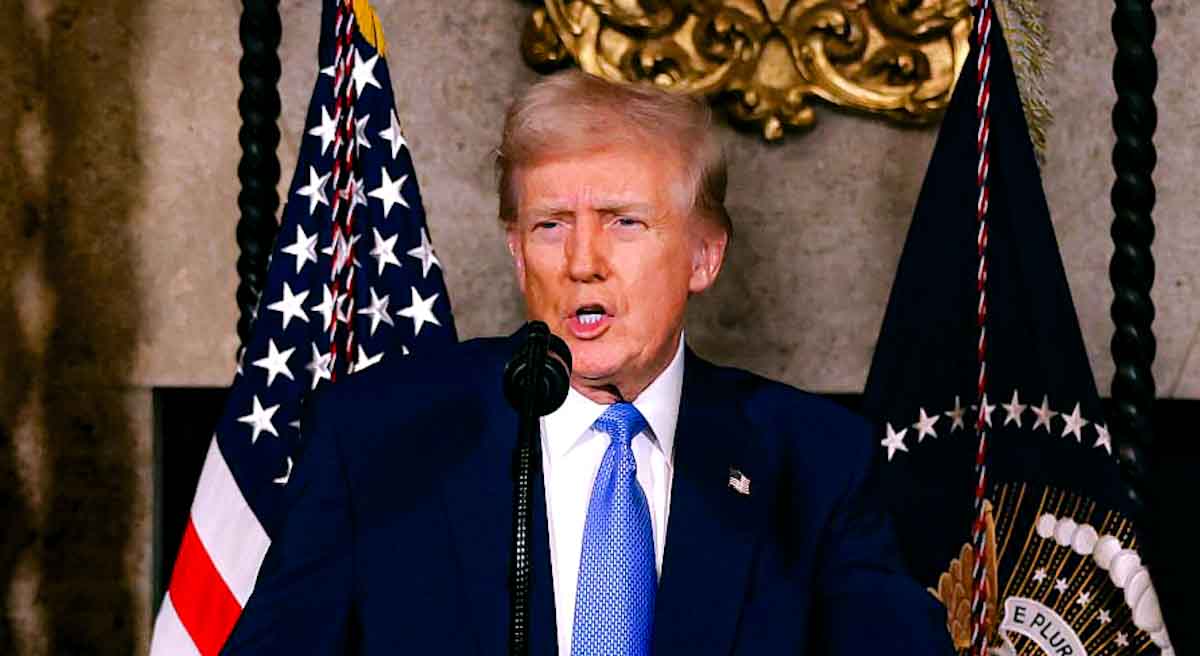Washington, D.C. – A heated confrontation between President Donald Trump and Maine Governor Janet Mills on February 21, 2025, has reignited the national debate over transgender athletes’ participation in women’s sports.
The clash, which took place during a White House meeting with state governors, stemmed from President Trump’s recent executive order barring transgender women from competing in female sports categories.
Executive Order 14201: “Keeping Men Out of Women’s Sports”
On February 5, 2025, President Trump signed Executive Order 14201, titled “Keeping Men Out of Women’s Sports.” The order mandates that participation in female sports be determined strictly by biological sex assigned at birth. The administration argues that allowing transgender women to compete in women’s categories compromises fairness and safety in sports. The order also threatens to revoke federal funding from educational institutions that fail to comply.
The policy has been met with widespread reactions from politicians, advocacy groups, and athletic organizations. While supporters claim it protects the integrity of women’s sports, critics argue it discriminates against transgender athletes, violating their rights under Title IX.
Tense Exchange Between Trump and Mills
During the White House meeting, President Trump directly confronted Governor Mills about Maine’s stance on the executive order. Trump questioned whether Maine would comply, to which Mills responded by reaffirming the state’s commitment to inclusivity and equal rights.
“Maine will continue to uphold our values of fairness and equality for all individuals, regardless of gender identity,” Mills stated. She also suggested that the state might take legal action if the federal government attempted to withhold funding.
Trump countered by warning of political consequences. “Enjoy your life after governor because I don’t think you’ll be an elected official afterwards,” he remarked, implying that defying the order could impact Mills’ political future.
Federal Investigations and Funding Threats
Shortly after the clash, the U.S. Department of Education’s Office for Civil Rights announced an investigation into Maine’s policies regarding transgender athletes. If the state is found in violation of the executive order, it could risk losing up to $250 million in federal education funding.
Maine is not the only state under scrutiny. Several Democratic-led states have opposed the order, setting the stage for potential legal battles over state versus federal authority.
National Reaction and NCAA’s Response
Following the executive order, the National Collegiate Athletic Association (NCAA) updated its policies to align with federal guidelines. Effective immediately, only athletes assigned female at birth will be eligible to compete in women’s sports at the collegiate level.
The decision has sparked mixed reactions within the sports community. Some female athletes have voiced support, arguing that transgender women have physiological advantages that create an unfair playing field. Others, including prominent LGBTQ+ advocacy groups, have condemned the policy as discriminatory.
“This is a direct attack on transgender athletes,” said Sarah Mitchell, a spokesperson for the Human Rights Campaign (HRC). “This policy sends a harmful message that transgender individuals do not belong in sports.”
Legal Battles on the Horizon
Several states and civil rights organizations are expected to challenge Executive Order 14201 in court. The American Civil Liberties Union (ACLU) has already indicated that it will file lawsuits on behalf of transgender athletes who are barred from competition.
Additionally, the Minnesota Attorney General’s Office has stated that the executive order does not override state laws protecting transgender rights. Minnesota officials have vowed to fight any attempts to enforce the policy within the state.
Impact on Future Elections
With the 2026 midterm elections approaching, the issue of transgender athletes in sports is likely to remain a focal point in political debates. President Trump’s firm stance on the matter has energized his conservative base, while Democrats are positioning themselves as defenders of LGBTQ+ rights.
Political analysts believe that the clash between Trump and Mills may influence upcoming gubernatorial and congressional races. Some strategists predict that Trump’s executive order could galvanize voter turnout on both sides of the debate.
Will Executive Order 14201 withstand legal challenges?
The conflict between President Trump and Governor Mills highlights the broader national discourse on transgender rights and fairness in athletics. As legal battles unfold, the future of transgender athletes in sports remains uncertain. The coming months will determine whether Executive Order 14201 withstands legal scrutiny or faces significant modifications.
For now, the debate over transgender inclusion in sports continues to divide the nation, with both sides firmly standing their ground.
